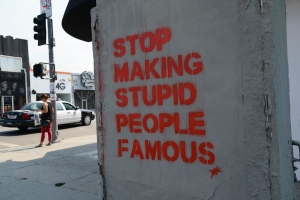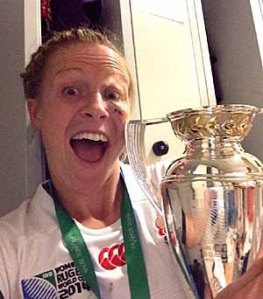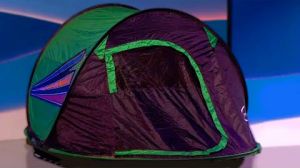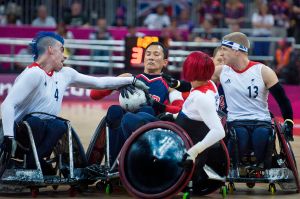This week I was finally able to book tickets to go and see one of my favourite stand up comedians, Sara Pascoe. To help explain how much I’m looking forward to seeing her live as part of her LadsLadsLads tour in November, I’ll be spending four months over the summer backpacking coast to coast across Canada, and still can’t wait.
Although hers will be the fourth live stand-up tour I will have been to after Ross Noble, Jon Richardson, and Jasper Carrott, I figured I’d put down in words why I’m looking forward to Sara Pascoe in particular.

Firstly, while she herself questions the notion of being labelled a “female comedian”, her gender is still relevant. The comedy circuit may not be unique in being a male dominated field, but with shows such as Mock the Week and Would I Lie To You often featuring a 6 to 1 male/female ratio, it is certainly one with a wider discrepancy than most.
Although Sara is not the only woman to have done so, the act of taking her place amongst the best in an arena which prioritizes men above women even more so than many others, to say nothing of the obstacles and even harassment that her male peers don’t face, shows what she has striven through, and is something that should be recognised (as it should for all women in male dominated industries).
As someone whose geographical location also limits the number of comedians I am able to go and see live, and who considers smashing the patriarchy from the inside as “fighting the good fight”, more than just being able to support a “female comedian” the fact I will be able to redress my own still otherwise skewed ratio is also something which gives this particular show an edge over the others.
In addition to this is the fact that as well as (perhaps in spite of) this, she has also strived to improve working conditions for up and coming comedians, and worked towards forming a union with the aim of helping those lower down the ladder of success for whom not being paid/unable to work through no fault of their own may have much greater consequences. A little known fact, but something which should give her more respect than she may otherwise receive.
As is perhaps unsurprising the content of her stand up routines themselves also played a large part in why I booked tickets for her latest tour. As a stand up comedian she has appeared in several TV shows including three stints on Live at the Apollo, and throughout these her routines have often made jokes that deal with gender, feminism, and ideas surrounding body image.
Her sets brim with satirical ideas that engage people well beyond just laughing at the funnies. Not only does this make her material more memorable, but also elevates it (at least according to Neil deGrasse Tyson’s definition) from entertainment into an art form which challenges people’s worldviews. She may not have been the first to discuss women’s magazines, but her ‘solution’ of having Page 3 adopt a jury duty style nomination system adds to conversations and debates surrounding the objectification of women which continues outside the comedy arena.
Although I have nothing against the observational comedy which sees the likes of Peter Kay making mass audiences laugh merely at everyday situations, to me it is those such as Pascoe who can add intelligence and more substance to their humour, and by doing so make the most of comedy’s potential, of which I am a particular fan.
More than just during her satirical routines however, she has also utilised this intelligence during her appearances on shows such as The Last Leg, and is something which is exemplified by her latest project, The Modern Monkey. A series of half-hour routines/lectures, it examines how evolutionary psychology explains modern behaviour in terms of what was necessary for our simian ancestors’ survival. It is series such as these which live up to the founding principles of the BBC itself and are produced “to educate, inform and entertain”; in essence, the sole reason for paying a TV licence even though it was made for the radio.
With each episode she examines a different concept (murder, jealousy, territory, and charity) by explaining her obviously thorough research using examples from her own life. Something which continues on from her book, Animal: The Autobiography of a Female Body, in which she not only makes hardcore science relatable, but which also includes the kind of searing honesty that makes it her most personal work.

More than just being the work of a sole author than a member of a panel, Animal delves into Pascoe’s own experiences of topics covering a wide spectrum of sex and relationships, including evolution (both biological and psychological), body image, and consent. Again, Pascoe is far from the first to have done this, but Animal stands out above the others from the best ever answer to the question ‘What is normal?’ – “a concept formed by averages but it changes with education and tolerance” – to the controversial topic of abortion which she discusses unashamedly via her own pregnancy as a teenager.
Throughout her comedy, regardless of medium, she infuses her work with honesty I can’t help by envy, is knowledgable enough to examine ideas with authority yet modest enough to never be condescending, but above all is passionate in her beliefs that makes her audience not just hear, but really listen to what she has to say. The fact that many of these are opinions and ideas I either already agree with or am fascinated to learn more about is just the cherry on top.
As if it doesn’t need mentioning, this blog post is also just a summary of some of her work, and which doesn’t even touch on her acting career which includes the celebrated Twenty Twelve & W1A and the obscure The Increasingly Poor Decisions of Todd Margaret, to her stage adaptation of Jane Austen’s Pride and Prejudice.

In essence, Sara Pascoe represents the polar opposite of (and solution to) that which I most dislike about the current entertainment industry, so-called “reality” TV. As much as we all need entertaining when we relax/veg out, you can still do this while appreciating something that talented creators have crafted and laboured over, rather than an ever-increasing number of clone series idolising those who have achieved next to nothing in terms of earning their right to be famous, and/or talent competitions which exploit contestants solely for their own gain and spit them back out again when they’re no longer profitable.
Throughout her career, whether as a stand up comedian, author, actor, or even playwright, Sara Pascoe proves there are better ways that Essex girls can be than the only one modern entertainment presents us with.


